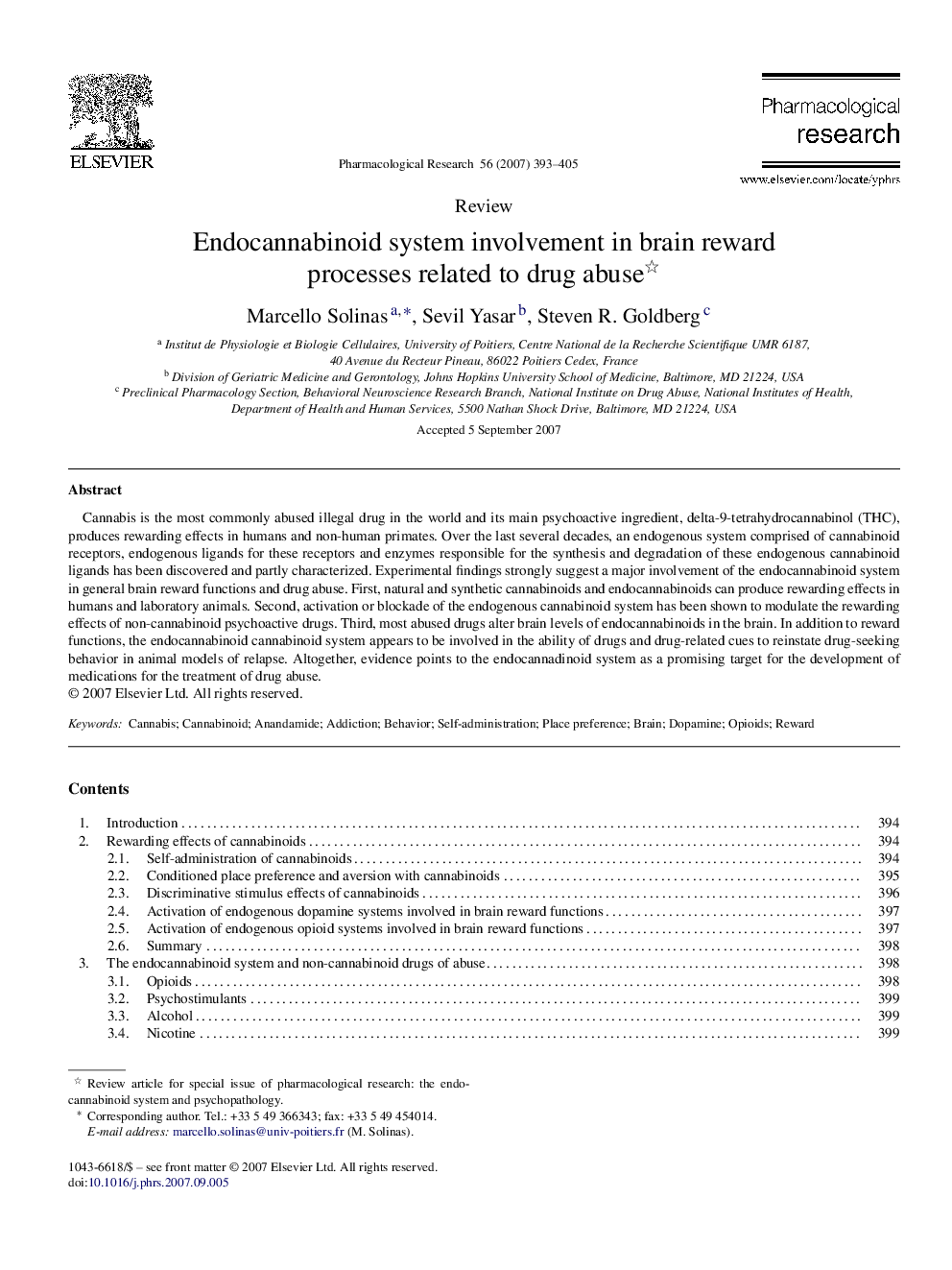| کد مقاله | کد نشریه | سال انتشار | مقاله انگلیسی | نسخه تمام متن |
|---|---|---|---|---|
| 2562659 | 1127155 | 2007 | 13 صفحه PDF | دانلود رایگان |

Cannabis is the most commonly abused illegal drug in the world and its main psychoactive ingredient, delta-9-tetrahydrocannabinol (THC), produces rewarding effects in humans and non-human primates. Over the last several decades, an endogenous system comprised of cannabinoid receptors, endogenous ligands for these receptors and enzymes responsible for the synthesis and degradation of these endogenous cannabinoid ligands has been discovered and partly characterized. Experimental findings strongly suggest a major involvement of the endocannabinoid system in general brain reward functions and drug abuse. First, natural and synthetic cannabinoids and endocannabinoids can produce rewarding effects in humans and laboratory animals. Second, activation or blockade of the endogenous cannabinoid system has been shown to modulate the rewarding effects of non-cannabinoid psychoactive drugs. Third, most abused drugs alter brain levels of endocannabinoids in the brain. In addition to reward functions, the endocannabinoid cannabinoid system appears to be involved in the ability of drugs and drug-related cues to reinstate drug-seeking behavior in animal models of relapse. Altogether, evidence points to the endocannadinoid system as a promising target for the development of medications for the treatment of drug abuse.
Journal: Pharmacological Research - Volume 56, Issue 5, November 2007, Pages 393–405